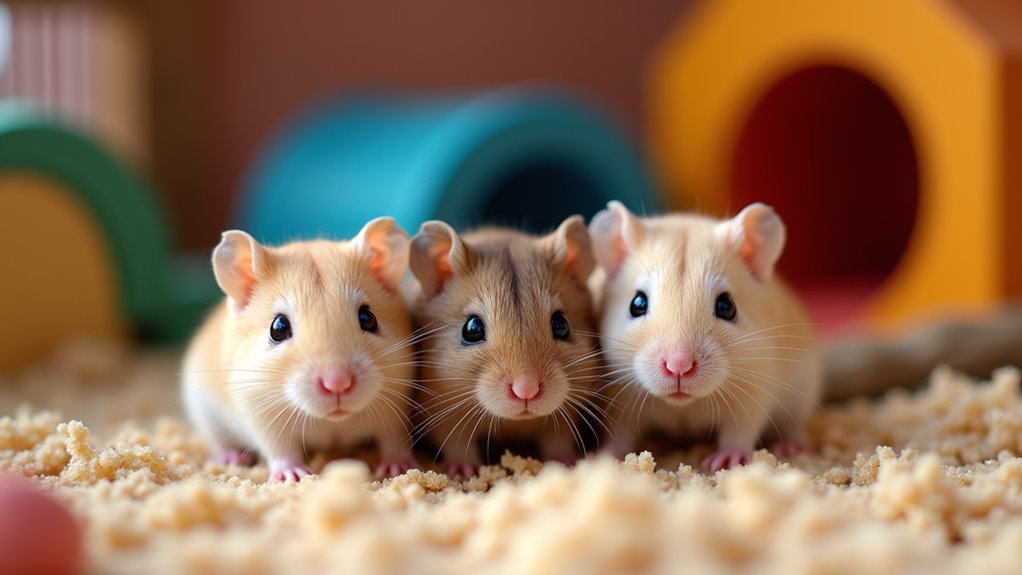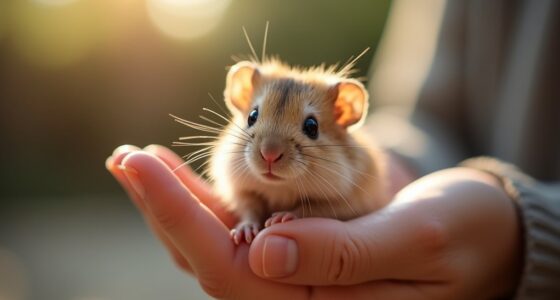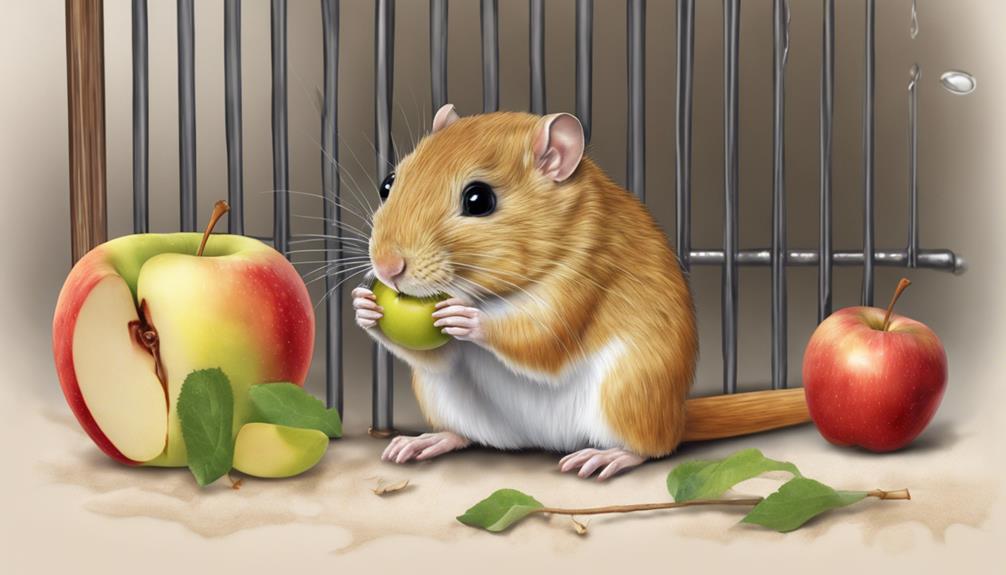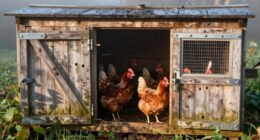Before getting a gerbil, understand they are energetic, social rodents that need a proper habitat, balanced diet, and enrichment to stay healthy and happy. Your setup should include bedding for digging, toys for mental stimulation, and fresh water at all times. Feeding should simulate their natural foraging, with small, regular portions. Keeping their environment clean and engaging helps prevent health issues. If you want to discover how to care for them best, there’s more to learn about these lively pets.
Key Takeaways
- Gerbils are small, energetic rodents that require a habitat with bedding, enrichment, and space to burrow and dig.
- They need a balanced diet of commercial food, fresh vegetables, and constant access to clean water.
- Proper habitat setup and cleanliness are essential to prevent health issues and promote natural behaviors.
- Regular monitoring of activity and diet helps maintain their health, preventing obesity and malnutrition.
- Gerbils are friendly pets that thrive with mental stimulation and a safe environment for a long, healthy life.
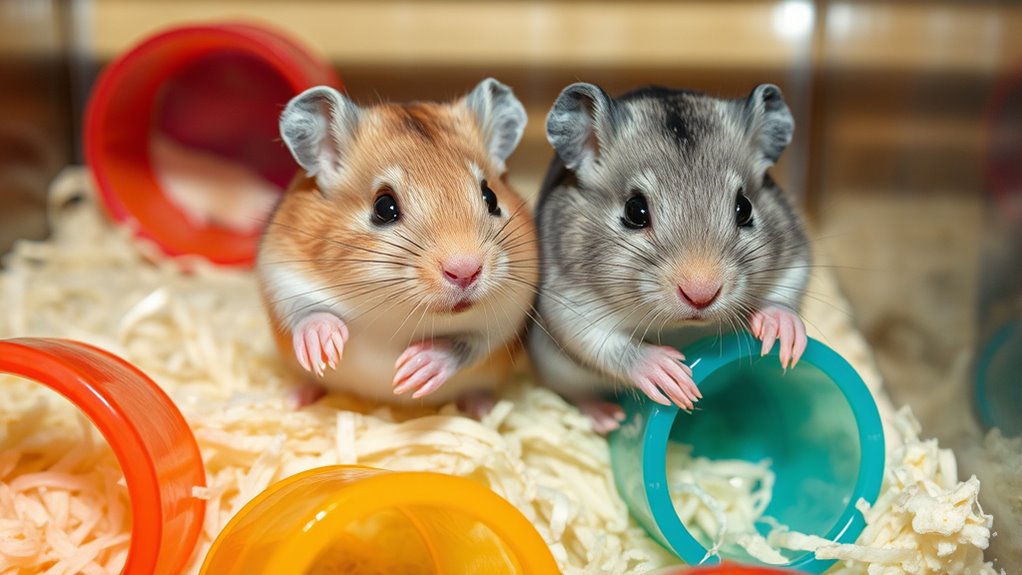
Gerbils are small, energetic rodents that make popular pets due to their friendly nature and easy care requirements. Before bringing one home, it’s essential to understand how to create a suitable environment and meet their dietary needs. Proper habitat setup is key to keeping your gerbil happy and healthy. For optimal health, it’s also important to monitor their activity levels and adjust their habitat to prevent boredom and stress. Creating a balanced diet that meets their nutritional needs is crucial for their longevity and well-being, including providing nutritional balance in their daily food intake. Ensuring proper habitat enrichment can significantly reduce stress and promote natural behaviors. When it comes to dietary requirements, you need to offer a balanced mix of nutrients to support their health. Commercial gerbil food, usually a seed-based pellet or mix, provides essential vitamins and minerals. However, you should supplement their diet with small amounts of fresh vegetables like carrots, broccoli, or cucumber, giving them variety and extra nutrients. Avoid feeding them sugary treats, citrus fruits, or anything toxic to rodents. Fresh water is essential and should be available at all times, ideally in a sipper bottle that prevents spills and contamination. Check the water daily and refill as needed. Gerbils have a tendency to hoard food, so providing a small dish for their daily rations helps prevent overeating and waste. Ensuring a consistent and appropriate diet helps prevent common health issues such as malnutrition or obesity, which are important considerations for responsible pet ownership. You also need to be mindful of their eating habits. They tend to nibble constantly, so offering small amounts of food multiple times a day mimics their natural foraging behavior. Keep their food clean and dry, replacing it regularly to prevent mold or spoilage. Their dietary needs are simple but require consistency to avoid health issues like malnutrition or obesity. Providing a variety of enrichment items in their habitat encourages natural behaviors and keeps them engaged. Incorporating mental stimulation through different toys and activities can further enhance their quality of life. Additionally, providing appropriate bedding helps insulate and comfort your pet while supporting their digging and burrowing behaviors. With proper habitat setup and attention to their dietary requirements, you’ll create a safe, engaging space where your gerbil can thrive, ensuring a happy and healthy companion for years to come.
Frequently Asked Questions
How Long Do Gerbils Typically Live?
Gerbil lifespan usually ranges from 2 to 4 years, but various longevity factors can influence this. You can help your gerbil live longer by providing a balanced diet, maintaining a clean habitat, and ensuring regular veterinary check-ups. Stress and poor care can shorten their life, so paying attention to their needs is essential. With proper care, you might even see your gerbil reach the higher end of their typical lifespan.
Are Gerbils Suitable for Children?
Thinking gerbils are perfect for kids? Well, their tiny, delicate bodies and social behavior might surprise you. They require proper gerbil nutrition and gentle handling, which can challenge little hands. Sure, they seem adorable, but they’re not the best choice if your child isn’t patient or careful. Gerbils thrive on companionship and need daily interaction, making them better suited for responsible owners who understand their social nature.
What Should I Do if My Gerbil Is Aggressive?
If your gerbil is aggressive, you should observe its behavior closely to identify triggers. Handle it gently and consistently to build trust, avoiding sudden movements. Make certain its cage is spacious and clean, as stress can cause aggression. If handling doesn’t improve gerbil behavior, consider consulting a veterinarian or a pet behaviorist. Handling aggression takes patience, but with gentle care, your gerbil can become more comfortable and less hostile.
Can Gerbils Be Kept Outside?
Sure, keeping gerbils outside sounds charming—until you realize outdoor housing isn’t ideal. Gerbils have specific environmental needs that indoor warmth and stability provide. Exposure to predators, extreme weather, and drafts can threaten their safety and health. So, while it might seem like a great idea, your best bet is to keep them indoors where you can control their environment, ensuring they stay happy and healthy.
Do Gerbils Require Vaccinations?
Gerbils don’t require vaccinations like some pets do, but keeping their health in check is essential. You should monitor their behavior and consult a vet if you notice signs of illness. While there’s no specific vaccination schedule for gerbils, regular health check-ups help prevent common issues. Ensuring a clean environment and proper diet supports their overall health, keeping your gerbils happy and healthy.
Conclusion
Before bringing a gerbil home, remember they’re social creatures that thrive with companionship and proper care. They’re also surprisingly active, running up to five miles a day on their wheels! Knowing these facts helps you create a happy, healthy environment for your new pet. With the right setup and attention, you’ll enjoy watching your gerbil thrive—an adorable, energetic addition to your life that’s well worth the effort.
